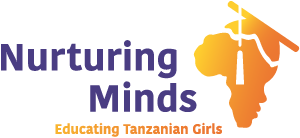The SEGA Graduate Business Development Program: Anna’s Journey
The SEGA Graduate Business Development Program was started in 2022 to support SEGA Girls’ School and Modern Girl Program graduates. This initiative provides additional entrepreneurship training and small loans to ensure the profitability and self-sustainability of diverse business ventures for these Tanzanian girls and women who confront significant financial and social obstacles, including sexual harassment and exploitation.
Statistics reveal alarming dropout rates, with approximately 30,000 girls leaving secondary school annually in Tanzania. Some 5,500 drop out due to pregnancy (World Bank), and 31% of girls in Tanzania marry before the age of 18 (Girls Not Brides).
Accessing formal employment remains exceedingly difficult, with limited job opportunities and many that put women in compromising situations. In response, many young women turn to self-employment to address these limitations. As a result, entrepreneurship offers increased autonomy and reduces the exploitation of women in Tanzania.
Numerous young women need help with barriers when beginning their own businesses, such as limited access to credit and a need for entrepreneurship training skills to develop viable enterprises aligned with market demands and profitability. Through the SEGA Graduate Business Development Program, graduates can gain experience and entrepreneurial knowledge to help them excel in their self-employment.
SEGA has partnered with SAWA Wanawake Tanzania, an organization dedicated to education and microfinance with over 20 years of experience. SAWA empowers at-risk women and children through microfinance initiatives, which aligns with SEGA's Graduate Business Development Program aimed at fostering female entrepreneurship and financial autonomy. Moreover, the program actively incorporates feedback from its alumni, constantly refining and enhancing its offerings based on their valuable insights and suggestions.
Anna exemplifies the Modern Girl Program graduate who benefited directly from the SEGA Graduate Development Fund. She is a 25-year-old who lives in the Morogoro region in Tanzania. She originally ran a small business selling cereal products for domestic meals, which could not sustain her with her family's subsistence needs. Similar to many other Tanzanian girls, Anna encountered numerous social challenges and instances of exploitation, which hindered her access to secondary education and professional development opportunities that could have secured her stable employment and sustained her livelihood.
Following in the footsteps of other young women in similar circumstances, Anna embarked on income-generating ventures to respond to the limited opportunities in the formal job sector. Unfortunately, her efforts were ineffective due to her lack of entrepreneurship skills and inability to access capital, likely caused by high-interest loans from business-oriented institutions.
Initially, Anna received some support through SEGA’s Modern Girl Program to launch a small business to reduce exploitation. However, this assistance did little to alleviate her challenges in difficult circumstances. However, Anna underwent business planning and management training through the SEGA Graduate Business Development Program. The program equipped her with additional entrepreneurship skills and enhanced her understanding of business. Following her training, Anna developed a small business plan, which led to her receiving a small loan. The goal was to ensure the profitability and sustainability of her business venture. As part of the program, Anna was encouraged to open a bank account, and her business was closely monitored and mentored. She was empowered to select businesses aligned with market demands, develop her enterprise, track her progress, and generate profit.
Before receiving the loan, Anna operated a small domestic goods business with a capital of TZS 200,000 (approx. USD $75). In less than eight months, Anna's business underwent significant expansion due to the increased capital. She transitioned from selling cereal products to offering a variety of domestic goods. With an expanded market, Anna now serves a more extensive customer base and has begun renovating her house while considering building a new one. She also plans to expand her business to include tailoring in the future.
After receiving a loan of TZS 1,200,000 (approx. USD $500), Anna invested in various products, including cooking oil, maize flour, sardines, starfish, students' exercise books, soap, toothbrushes, and body lotion. She diligently maintains business records and manages her finances responsibly. She used her profits to repay the loan in full. Additionally, Anna participates in a village community savings program, setting aside TZS 8,000 (approx. USD $3.50) daily for eight months. She has also invested in expanding her business space by purchasing bricks worth TZS 400,000 (approx. USD $18).
Anna's remarkable transformation has inspired admiration from other girls and women in her village. She attributes her success to the entrepreneurship skills she has acquired, emphasizing that her business not only provides a sustainable income but also protects her from the risks of sexual harassment and exploitation prevalent in Tanzania.
Self-employment through entrepreneurship offers independence and diminishes the likelihood of exploitation for women in Tanzania, and the crucial support provided to Anna is also available to numerous girls through the SEGA Graduate Business Development Program.
To support other women in Tanzania in starting their businesses through the SEGA Graduate Business Development Program, kindly reach out to info@nurturingmindsinafrica.org for more information.

